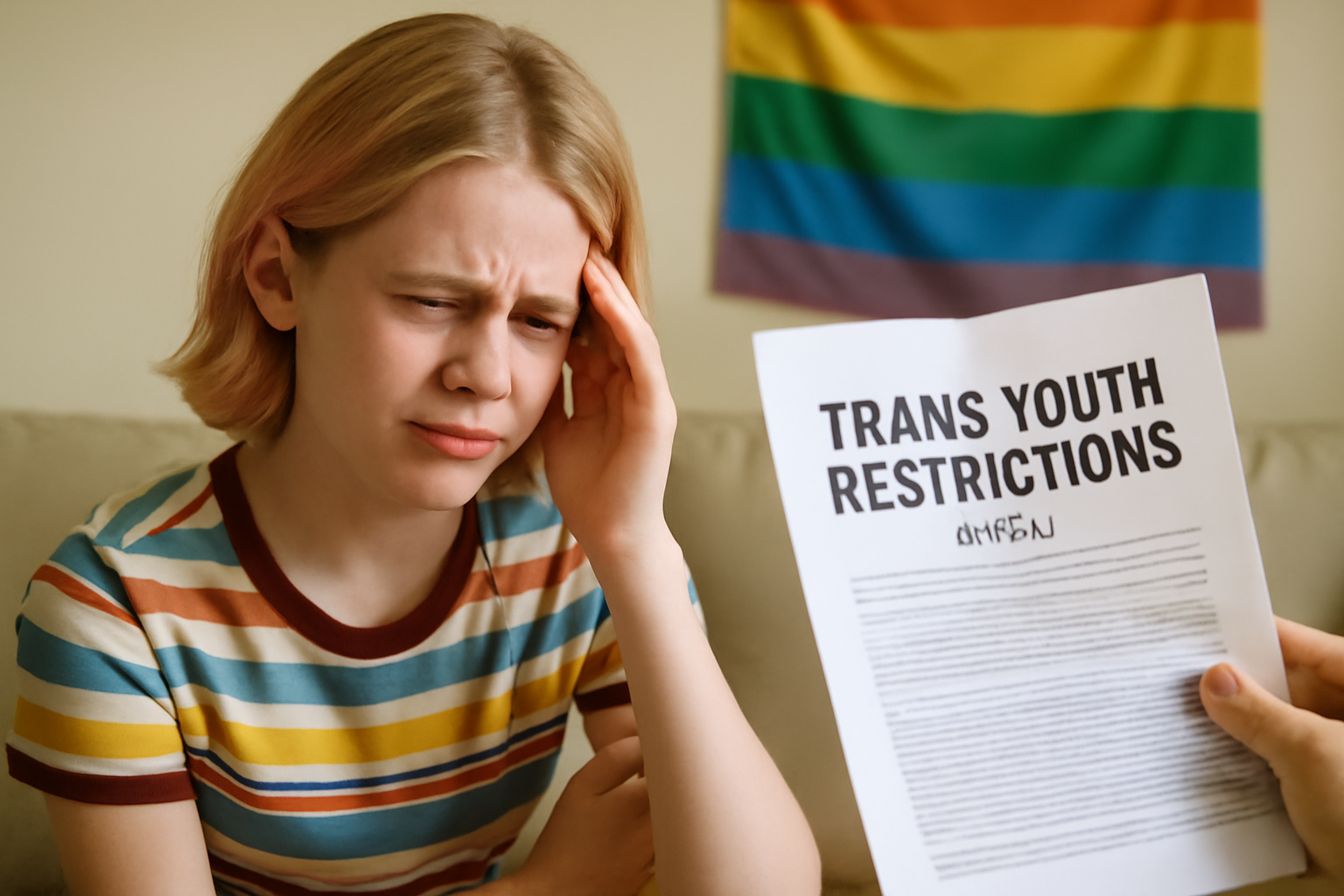
In a controversial move that has sparked significant debate, lawmakers from the GOP have recently proposed a new bill aimed at restricting the ways in which parents and guardians can support their transgender children, particularly by influencing their choice of name or style. The proposed legislation has raised alarm among LGBTQ+ advocates who argue that it infringes on personal freedoms and could have detrimental effects on the mental health and well-being of transgender youth.
Understanding the Proposed Bill
The bill, introduced by conservative legislators, seeks to impose penalties on parents, guardians, or any individuals who assist or support transgender minors in changing their names or adopting a new haircut that aligns with their gender identity. Proponents of the bill claim it is intended to protect children from making irreversible decisions at a young age, although critics argue that it is an overreach of government power into personal family matters.
Under the proposed legislation, any act deemed as "support" for a minor's gender transition, such as acknowledging a child's chosen name or allowing a gender-affirming haircut, could potentially be subject to fines and other legal consequences. Opponents of the bill fear that this could lead to increased stigmatization and isolation of transgender youth who are already at risk for higher rates of mental health issues.
Impact on Trans Youth and Families
LGBTQ+ advocates and human rights organizations have been quick to criticize the proposed bill, arguing that it targets a vulnerable population and undermines the ability of families to make decisions that are in the best interest of their children. Allowing children to explore their gender identity in a supportive environment is crucial for their mental and emotional well-being, experts say.
Transgender youth often face significant challenges, including discrimination and social rejection, and having supportive family members is key to their resilience. By limiting how families can support their transgender children, the bill could exacerbate feelings of alienation and distress among trans youth, leading to poorer mental health outcomes.
Reactions from the Community
The proposal has drawn widespread condemnation from LGBTQ+ organizations, mental health professionals, and many members of the public who view it as an attack on personal freedoms. Advocacy groups have vowed to fight the bill, emphasizing the importance of family support and acceptance for transgender individuals.
"This bill is not about protecting children; it's about controlling families and denying trans youth the affirmation they need," said one spokesperson from a prominent LGBTQ+ rights organization. "It's crucial that we stand up for the rights of parents and children to make decisions about their own lives without government interference."
Legal and Ethical Considerations
Legal experts have also raised questions about the constitutionality of such a bill. Restricting a child's ability to express their gender identity could potentially infringe upon their rights to free expression and privacy. Additionally, the bill could set a precedent for further legislation that seeks to limit the freedoms of marginalized communities.
Ethical considerations also come into play, as the bill challenges the autonomy of parents to make decisions that are in the best interests of their children. By imposing legal consequences for acts of support, the legislation could create a climate of fear and silence among families.
Looking Ahead
As the bill makes its way through the legislative process, it remains to be seen how it will be received by lawmakers and the public. With ongoing debates about the rights of transgender individuals and the role of government in personal family matters, this proposal highlights the deep divisions and complexities of navigating these issues in today's society.
For now, the LGBTQ+ community and its allies continue to advocate for the rights and well-being of transgender youth, emphasizing the importance of acceptance and support in creating a more inclusive and equitable world for all.
Related Posts
Triumphant Trans Woman Wins Legal Battle and Inspires Others to Stand Up for Their Rights
Breaking new ground: a landmark victory in transgender rights After battling in courtrooms and enduring endless challenges, Diana Portillo, a transgender woman, has secured a monumental victory in her decade-long fight against workplace discrimination. The result? Nearly $1 million awarded in a historic settlement. But this isn't just a win on paper—it represents a powerful precedent in combati [...]
Pride Month in Latin America: Protests and Demands for Equality
**Celebrating Pride and advocating LGBTQ+ rights in Latin America** Pride Month in Latin America was a lively mix where celebration met activism. Communities united, not just throwing a party but making a stand—demanding equality and pushing governments toward better protection and rights recognition. Throughout Latin America, pride events erupted in marches and cultural displays, each with a c [...]
Transgender Erasure Actions Implemented by National Park Service
```html Trump administration's impact on national park service and transgender recognition The Trump administration made notable moves in undermining transgender representation, which included directing agencies like National Park Service not include "T" and "Q" when they refered “LGBTQ” in any official communication. This move seems part a broader plan by this administration aimed at reducin [...]